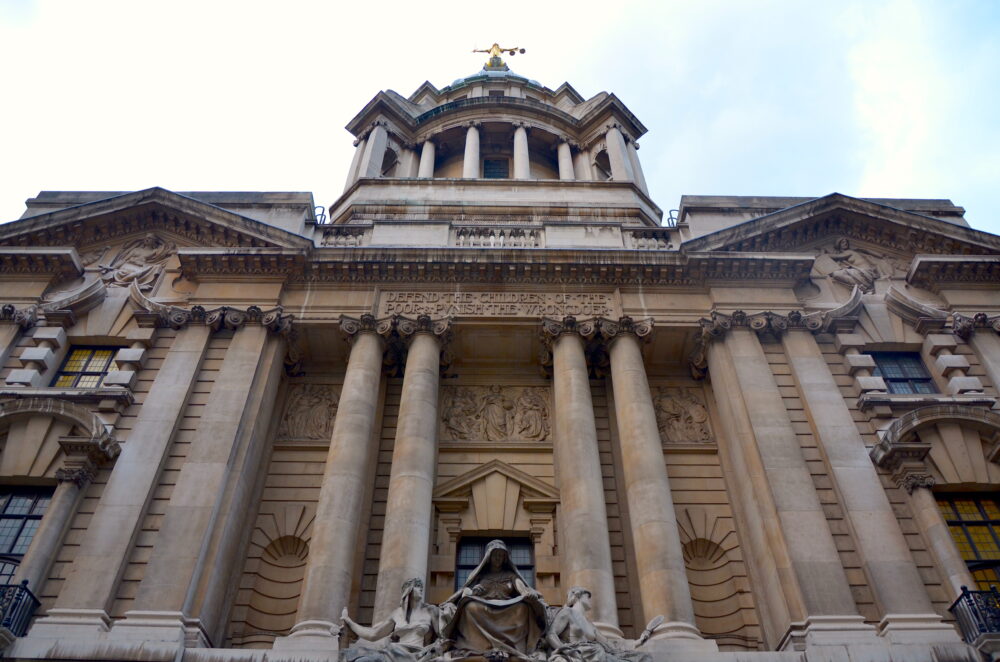ASSANGE EXTRADITION: Craig Murray: Your Man in the Public Gallery: Assange Hearing—Day 6
by Craig Murray, Consortium News*: Former British diplomat Craig Murray was in the public gallery at Old Bailey for Julian Assange’s hearing and here is his report on Monday’s bizarre events.
Former British diplomat Craig Murray was in the public gallery at Old Bailey for Julian Assange’s hearing and here is his report on Monday’s bizarre events.
Things became not merely dramatic in the Assange courtroom today, but spiteful and nasty. There were two real issues, the evidence and the procedure. On the evidence, there were stark details of the dreadful regime Assange will face in US jails if extradited. On the procedure, we saw behaviour from the prosecution QC that went well beyond normal cross examination and was a real attempt to denigrate and even humiliate the witness. I hope to prove that to you by a straightforward exposition of what happened today in court, after which I shall add further comment.
Today’s witness was Eric Lewis. A practising US attorney for 35 years, Eric Lewis has a doctorate in law from Yale and a masters in criminology from Cambridge. He is former professor in law at Georgetown University, an elected member of both the American Law Institute and the Council on Foreign Relations and a fellow of the American Bar Foundation. He is Chairman of Reprieve. He has represented high profile clients in national security and terrorism cases, including Seymour Hersh and Guantanamo Bay internees.
Lewis had submitted five statements to the court, between October 2019 and August 2020, addressing the ever changing indictments and charges brought by the prosecution. He was initially led through the permitted brief half hour summary of his statements by defence QC Edward Fitzgerald. (I am told I am not currently allowed to publish the defence statements or links to them. I shall try to clarify this tomorrow).
Eric Lewis testified that no publisher had ever been successfully prosecuted for publishing national security information in the USA. Following the Wikileaks publications including the diplomatic cables and the Iraq and Afghanistan war logs, Assange had not been prosecuted because the First Amendment was considered insuperable and because of the New York Times problem – there was no way just to prosecute Assange without prosecuting the New York Times for publishing the same material. The New York Times had successfully plead the First Amendment for its publication of the Pentagon Papers, which had been upheld in a landmark Supreme Court judgement.
Lewis here gave evidence that mirrored that already reported of Prof Feldstein, Trevor Timm and Prof Rogers, so I shall not repeat all of it. He said that credible sources had stated the Obama administration had decided not to prosecute Assange, notably Matthew Miller, a highly respected Justice Department figure who had been close to Attorney General Holder and would have been unlikely to brief the media without Holder’s knowledge and approval.
Eric Lewis than gave testimony on the change of policy towards prosecuting Assange from the Trump administration. Again this mostly mirrored the earlier witnesses. He added detail of Mike Pompeo stating the the free speech argument for Wikileaks was “a perversion of what our great country stands for”, and claiming that the First Amendment did not apply to foreigners.
Attorney General Sessions had accordingly stated that it was “a priority for the Justice Department” to arrest Julian Assange. He had pressured prosecutors in the Eastern District of Virginia to bring a case. In December 2017 an arrest warrant had been issued, with the indictment to be filled in later. The first indictment of a single count had been launched in March 2018, its timing possibly dictated by a limitation deadline.
In May 2019 a new superseding indictment increased the counts from one to eighteen, seventeen of which related to espionage. This tougher stance followed the appointment of William Barr as Attorney General just four months previously. The plain intention of the first superseding indictment was to get round the New York Times problem by trying to differentiate Assange’s actions with Manning from those of other journalists. It showed that the Justice Department was very serious and very aggressive in acting on the statements of Trump administration officials. Barr was plainly acting at the behest of Trump. This represented a clear abuse of the criminal enforcement power of the state.
The prosecution of a publisher in this way was unprecedented. Yet the facts were the same in 2018 as they had been in 2012 and 13; there was no new evidence behind the decision to prosecute. Crucially, the affidavits of US Assistant Attorney Gordon Kromberg present no legal basis for the taking of a different decision to that of 2013. There is no explanation of why the dossier was lying around with no action for five or six years.
Read More @ ConsortiumNews.com



